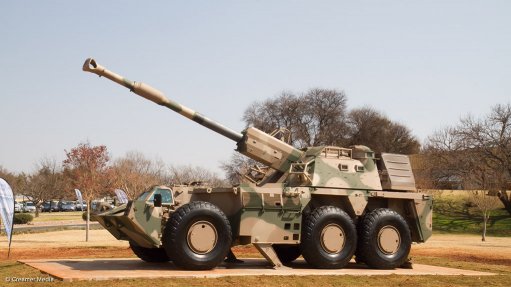
‘TANKS’ A LOT Denel defends South Africa on land, in the air and now in cyberspace
With the Fourth Industrial Revolution, the rapid growth of the Internet and the speed at which the cyberenvironment is developing, State-owned aerospace and military technology conglomerate Denel says security spaces need to be tightly monitored.
The defence and national security environments have often, in the past, merely used commercial and off-the-shelf products to meet their information and communications technology (ICT) needs. Not much concern or attention has been paid to where the equipment and the ICT service or network is coming from.
This is the thinking behind the vision of the newly established Denel Sovereign Security Solutions (Denel S3) division. Denel S3 is preparing for the new digital wave in technology that is sweeping through the global society.
“We are developing solutions and training staff with a specific focus on software technology and software integration in particular,” enthuses Denel SOC business development senior executive Mark Minnies. He further adds that this implies the ability to work with various software subsystems, sensors and subsuppliers to deliver bespoke systems that comply with the highest levels of security and integrity.
The areas and projects identified by Denel S3 include: the content management interoperability services environment in defence and defence intelligence; State Security Agency information technology (IT) and cybertechnology environment; sensitive technologies in the Department of Home Affairs; the integrated systems in the national border environment; sensitive technologies and networks in the Department of Justice, the policing environment and strategic partnering with the State Information Technology Agency for sensitive national security technology areas.
The speed at which cybertechnology is developing and the vulnerabilities that come with it, force us to sit up and question who is running the country’s IT networks for the Presidency, the defence, justice, police, emergency services and other strategic national infrastructure.
“Other critical national infrastructure is all managed through a network of ICT systems including the national payment system of banks, the national electoral system, water, energy, home affairs, transport, border control and the national government’s Cloud Programme,” says Minnies.
He adds that these critical national infrastructure elements are extremely exposed if one takes into account the capabilities and reach that cyber rogue elements have at their disposal today.
Moreover, Denel’s existing capability in the digital space is confined to the deep software capability that drives its missiles, unmanned aerial vehicles, artillery and aerospace products. This software capability can be expanded with the training and developing of human resources in software integration in particular – we already have capabilities in electronic and mechanical – for the development of bespoke software solutions, combining various software subsystems, electronics and sensors.
Should government support the efforts of Denel S3 in the digital space for national security-related programmes, one can assume improved integrity in national systems, he points out. Other advantages include the increased development of digital skills of government human capital instead of the current overreliance on the private sector – and, in some instances, of foreign origin. It could also lead to an increased demand for locally developed software subsystems instead of the current widespread practice of supporting foreign software locally.
“Denel will in future increasingly explore working with local companies with locally developed technologies who will, in turn, con- tribute to providing complete solutions in the digital environment,” concludes Minnies.